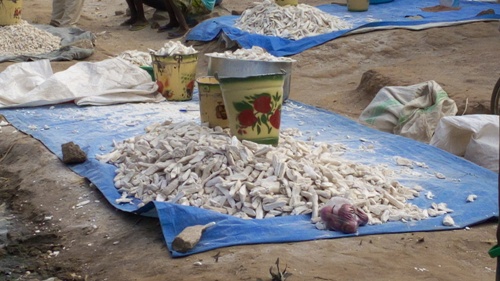Local traders in Yei River County said the purchasing power has drastically declined because rampant insecurity in the state.
Speaking to Radio Tamazuj on Monday, several traders complained about rising internal insecurity in the state and said insecurity was to blame for the slow economic recovery process in the state.
Modo Meling, a local trader, who sells her grains at Dar-el-Salam market, said the business climate in Yei town has deteriorated because of the recurring insecurity which led to the closure of roads to Yei town.
“We are local traders, we used to buy our goods locally from counties like Morobo, Lasu, Otogo and Lainya but because of this nonstop fighting, most of our businesses have collapsed. My neighbour has closed her shop and fled to Uganda because of poor business climate,” lamented Meling.
Meling blamed the government for failing to stop the ongoing war in order to improve local production. “We call ourselves a country and yet we are not able to stop the war to improve the poor exchange rate, and taxes are being used by individuals,” she said.
Moses Data, a local retail seller, said most of the foreign traders are closing their shops and leaving Yei opting to operate in Juba because of the worsening business situation in the area.
He further said the government does not subsidize goods from neighbouring Uganda, making the prices double in the markets.
“We are still buying goods from Juba at high costs and since we also need profit, we will continue transferring the burden to the consumers until the government responds,” he said.
For his part, chairperson of the chamber of commerce in Yei, Charles Data admitted that the business environment in Yei is poor and traders are not able to access essential commodities.
“Here in Yei the market is so high, a bucket of maize is 1,200 SSP, a bucket of sorghum costs 950 SSP and that of cassava is sold at 500 SSP, currently the rate of production is zero completely. The government should consider Yei so that when it comes to allocation of goods, it should be uniformly distributed,” Data said.




